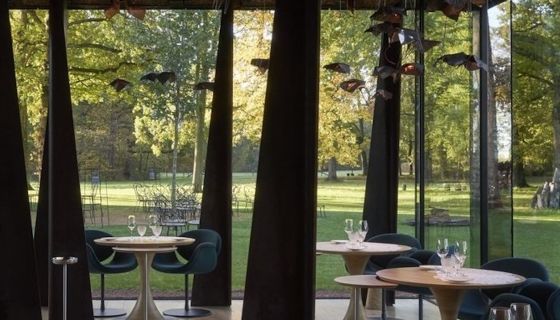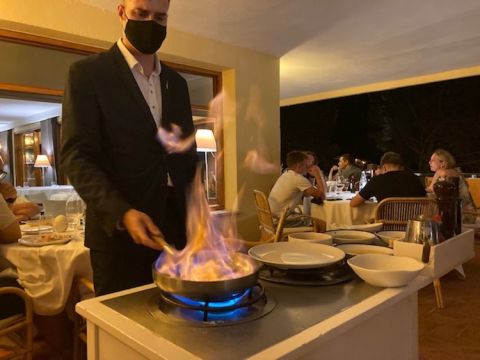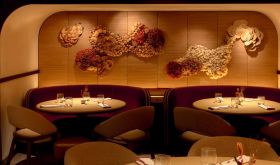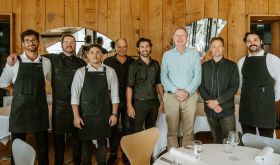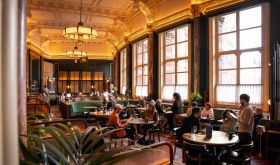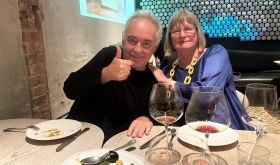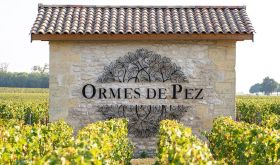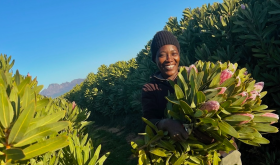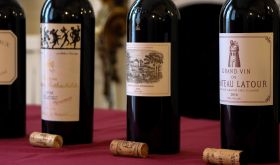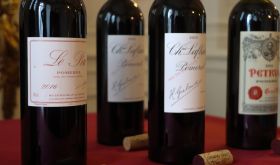This is the week of the year in which my article invariably earns the headline ‘The most enjoyable meals of the year’ or something like that in the FT. It has been one that I write having gone through all my articles on this website. I then pick out about 12 of my most fascinating meals during the past 12 months and find a common theme which unites them all.
For obvious reasons last year produced no such article, and 2021 has proved little better. There were no trips to the US, to Asia, none to see our friends in Australia and New Zealand, and only one excursion to France with a side trip from the Languedoc across the Pyrenees to the Costa Brava.
But as I began to look more closely at those restaurants as well as the predominantly British list of restaurants that have excited me during 2021, I began to realise that they all share one important distinction. There was a common theme that united all those restaurants, or at least all the chefs at the places I am about to write about. It is a trait that I have taken for granted for so long that I have never written about it before.
And that is a generosity of spirit, an indisputable sine qua non for any aspiring chef. This manifests itself in different ways, one of which I still remember from the dinner for my 50th birthday on 8 April 2002 at Harry’s Bar in Venice. Arrigo Cipriani, the proprietor, was doing his tour of the tables when he came to ours as our waiter was taking the order. In an aside that was loud enough for us all to hear, I remember Cipriani saying to the waiter, ‘And make sure there is extra for this young man’, he said pointing to our son, then only 17. ‘He will be a customer for the future.’
Generosity of spirit usually manifests itself in ‘extra helpings’ but this is not that easy for the chef to arrange. One portion manifestly larger than the others can be construed as favouritism. Too much of this habit can also affect a restaurateur’s gross profit margins. And how does someone in the kitchen ensure that the overloaded plate goes to the appointed recipient?
An extra, unordered course – usually made obvious by the dispersal of cutlery alien to the food you have ordered – is often the answer. But this raises another potential danger: that the kitchen may be offering a dish that includes an ingredient to which one member of the table is intolerant.
This phenomenon is therefore, I would argue, one that is inherent in the DNA of the chef and can be transferred to every other member of the team. It is obvious in the least expensive of cooking styles but is more practical where and when the menu prices are higher as it becomes easier then for the extra costs to be hidden away.
And so it proved at my two most expensive meals of the year, our two dinners for four each at Maison Troisgros in Ouches (pictured above) and Lameloise in Chagny in France. They cost considerably more than I received by way of remuneration from the FT for my report on them. But these two meals exemplified a generosity of spirit that was manifest in two dishes that cannot have cost very much at all. The first was served at Troisgros as an amuse-bouche and was a tart, cut into eight, of the solidified liquid from a pot-au-feu with a touch of sherry vinegar. Possibly the cost of the energy involved in its cooking was the biggest single cost ingredient in this dish. Then at Lameloise there were the bread rolls – worth, as the strap-line on the article indicated, the detour to Chagny alone. Priming its customers’ appetite is a sure sign that the kitchen is imbued with a generosity of spirit.
Such thoughtfulness was on show immediately at the Partick Duck Club in Glasgow, where the two chefs have found the perfect solution to every customer’s most frequently asked question: where are the toilets please? Above the open kitchen in bright illuminated coloured letters are the words Water Closets with an arrow pointing to the right. This was before I had tucked into a delicious combination of a Duck Club bun and a plate of irresistible salted duck-fat fries.
It’s easier, it could be argued, for chefs in hotel restaurants to display a generosity of spirit because they have the advantage of income from the rooms as well as the profitable breakfast and afternoon-tea services. But that alone will not explain the generosity on show at Hambleton Hall by Rutland Water; by the executive chef Mario Perera’s distinctive Sri Lankan cooking at The Dorchester; and the overall generosity of the Subirós family at Almadraba Park Hotel in Roses from April to early October each year and where their particular speciality is a first course called ‘rigatoni flambé’ prepared at the table (demonstrated below) as well as wonderful fish and shellfish.
In one other respect, hotel chefs have an advantage over restaurant chefs in that their guests are there for a longer stay than just one meal, allowing them the opportunity to show off their skills and their generosity. But that will not explain how Aaron Patterson, the Hambleton chef, looks on his ingredients as though their price has not changed in the 30 years he has been in charge there. Then there is the obvious eagerness to please on show at The Forest Side between their Hull-born chef, Paul Leonard, their Polish-born sommelier, Michal Dumny, and the half-Danish Bjorn Abraham, who is in charge of their splendidly bountiful gardens which supply vegetables, fruit and much more to this obviously highly talented kitchen.
At The Dorchester Hotel, under rather unusual circumstances, we ate the Sri Lankan food of Mario Perera – a blue lobster kottu, hoppers, ‘Mummy’s’ chicken curry and, perhaps most memorably of all, a buttermilk loaf with a caramelised-onion marmalade. At Almadraba Park for almost a week we ate breakfast, lunch and dinner with great pleasure overlooking the Mediterranean.
I would like to end by mentioning three London chefs who I believe also exude this particular and essential (to me) trait for the long-term success of any aspiring chef in restaurants, all of whom have opened their doors in 2021. Head to Pali Hill in Mortimer Street for the Indian cooking of Avinash Shashidhara; to Fallow on the Haymarket for the combined culinary skills of Jack Croft, Anna Williams and Will Murray; and to Maison François on Duke Street for those of chef Matthew Ryle.
Almadraba Park Hotel
The Dorchester Hotel
Fallow
The Forest Side
Hambleton Hall
Maison François
Maison Lameloise
Maison Troisgros
Pali Hill
Partick Duck Club

